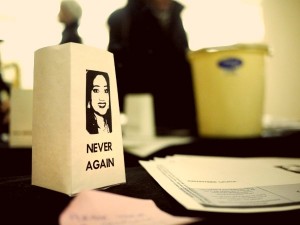Germaine Greer believes some transphobic things. This isn’t new. It’s not even the first time this year she’s been in the news saying something transmisogynistic. Back in January she told a room in Cambridge that she doesn’t believe in transphobia. She went on to say that trans women don’t know what it’s like to have a “big, hairy, smelly vagina”- implying, I guess, that the state of someone’s vag has an impact on whether they can be a woman or not. Of course, Greer has been openly spouting transmisogyny for years. Back in 2009 she described trans women as “some kind of ghastly parody” in the Guardian. As far back as 1997 she was campaigning against trans women’s inclusion in women’s colleges.
Greer is notorious, and she’s done some valuable work in her time. Her views on trans women don’t make her other critiques go away. However, the converse is also true: the fact that Greer has written interesting things about women, the family, liberal feminism and sexuality doesn’t mean that her transmisogyny deserves a platform.
Last week, a group of students petitioned for Greer to be barred from speaking at Cardiff University because of her history of transphobia. Now, it turns out that they probably won’t succeed- so far, the university is rejecting the petition. But let’s say that they did.
I’ve seen three reasons why Greer should have her university platforms. The first- that her views have merit- we can dismiss out of hand. Trans women are women, end of story. The other two, related to each other, do have merit (although I disagree with them both). These are the idea that denying Greer a platform is an attack on freedom of speech, and that even if her views are terrible, the best way to handle them is through giving them an airing- the ‘marketplace of ideas’ approach.
Both of these are wrong. Continue reading “Germaine Greer? The market has spoken. We don’t want the transphobia you’re selling.” →



